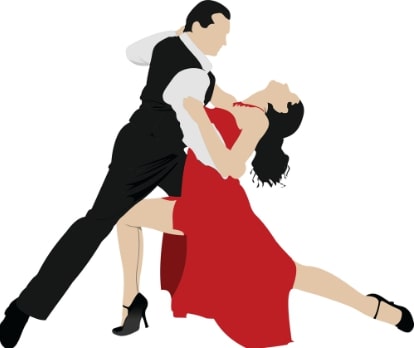When no Americans replied to her multiple help-wanted ads for a Ballroom dancers instructor, Connecticut studio owner Chris Sabourin looked overseas for a qualified candidate. But she was stymied again by a federal tightening of visa application rules that she and others contend is hampering the Ballroom dancers industry.
Sabourin had to eventually give up on one prospective employee after spending the past year and thousands of dollars attempting to hire a top ballroom dancer from Greece to teach at her Fred Astaire studio in Orange, only to have the woman detained at JFK International Airport and sent back home.
“It would just be nice to know why we’re having such a hard time,” Sabourin said. “It’s affecting our business, definitely.”
With a steady interest in learning iconic dances like the foxtrot and tango, fueled in part by popular TV shows like “Dancing with the Stars,” studio owners like Sabourin say their efforts to hire enough professional instructors are hampered without overseas help. The owners, national representatives of the Arthur Murray and Fred Astaire dance studio chains, and attorneys describe greater backlogs for visa applications and an overall increase in evidence requests, including for redundant information and unnecessary documents. Immigration lawyers contend President Donald Trump’s administration has erected an “invisible wall” of numerous hurdles that has made it difficult for all kinds of U.S. industries, from ballroom dance to STEM fields, to hire foreign workers for jobs they’ve had a difficult time filling with qualified American applicants.
A review of United States Citizenship and Immigration Services (USCIS) data released in January by the American Immigration Lawyers Association found that average case processing time surged by 46% between fiscal year 2016, the last full year of the prior administration, and fiscal year 2018 — from 6.5 months to 9.48 months. In congressional testimony provided in July, the association’s president, Marketa Lindt, said USCIS’s overall backlog of delayed cases exceeded 5.69 million this past fiscal year, a 69% increase over fiscal year 2014. Meanwhile, federal records reviewed by The Associated Press show there’s been a slight uptick since 2017 in initial application denials for 01 visa applications from individuals with “extraordinary ability or achievement” — the visa that many of the foreign dancers seek — as well as for 01 visa applicants who were given a second chance to meet eligibility requirements.

For more update Click Here
For Information Source Click here



